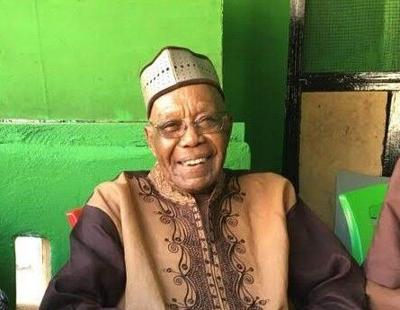James Dennis, a recently deceased Liberian journalist, stands as a towering figure in media, not just within Liberia, but globally. His impact transcended his physical stature, leaving an enduring legacy of courage, integrity, and service. Dennis’s involvement in the recent Press Union of Liberia (PUL) leadership struggle exemplified his commitment to fostering resolution and unity within the media landscape. His dedication to the PUL, of which he was a founder, stemmed from a deep-seated belief in its crucial role in upholding democratic principles and holding power accountable. His actions served as a powerful counter-narrative to the prevailing autocratic tendencies, demonstrating the importance of merit and qualification over personal connections in leadership. This emphasis on merit challenged the deeply entrenched systems that perpetuate poverty, a persistent societal ill.
During Liberia’s civil war, Dennis’s bravery shone brightly. He provided refuge for numerous individuals, including journalists and religious leaders, targeted by the government for their outspokenness. He risked his own life and the safety of his family and friends to protect those whose voices were threatened. This act of selflessness underscored his unwavering commitment to the principles of service and protection of free speech, values central to the ethos of a true journalist. His actions resonated far beyond Liberia’s borders, serving as a beacon of hope and inspiration for journalists worldwide, particularly in countries where governments suppress dissent and persecute those who dare to expose corruption.
Dennis’s legacy highlights the critical role of honest and courageous journalism in confronting corruption, a pervasive problem that plagues governments globally. While many governments, including Liberia’s current administration, acknowledge corruption as a major societal enemy, concrete strategies for its eradication often remain elusive. Dennis understood that raising awareness through truthful reporting is a powerful tool against corruption. He recognized that exposing corrupt practices, even at great personal risk, is essential for holding those in power accountable. His work underscores the indispensable role of a free press in a functioning democracy.
The impact of individuals like Dennis, committed to truth and justice, can be seen in the recent Liberian elections. The significant turnover in the National Legislature suggests a growing public awareness of corruption and a desire for change. This shift demonstrates the power of information and accountability in motivating citizens to exercise their rights and elect leaders who prioritize integrity. The trend towards electing officials based on merit rather than patronage is a hopeful sign of progress towards a more just and equitable society.
The transformation of the electoral system, driven by the demand for accountability, is crucial for ensuring that competent and ethical individuals hold positions of power. This transformation paves the way for a system where justice prevails, an essential ingredient for lasting peace and progress. Dennis understood that true progress necessitates more than just acknowledging corruption; it requires actively dismantling the systems that perpetuate it. He also recognized that lasting peace is contingent upon a foundation of justice, where all citizens are treated fairly and with respect under the law.
Dennis’s legacy serves as a testament to the power of individuals to affect positive change, even in the face of adversity. His courage, integrity, and unwavering commitment to truth inspire hope for a future where freedom of the press is protected, corruption is exposed and eradicated, and justice prevails. His example reminds us that true leadership is not about power or position, but about service and sacrifice. He embodied the spirit of a true journalist, a champion of truth, and a defender of the voiceless. His life’s work emphasizes the critical role of a free press in holding power accountable and promoting a just and equitable society. He demonstrated that even in the most challenging circumstances, one person’s commitment to truth and justice can make a world of difference.














